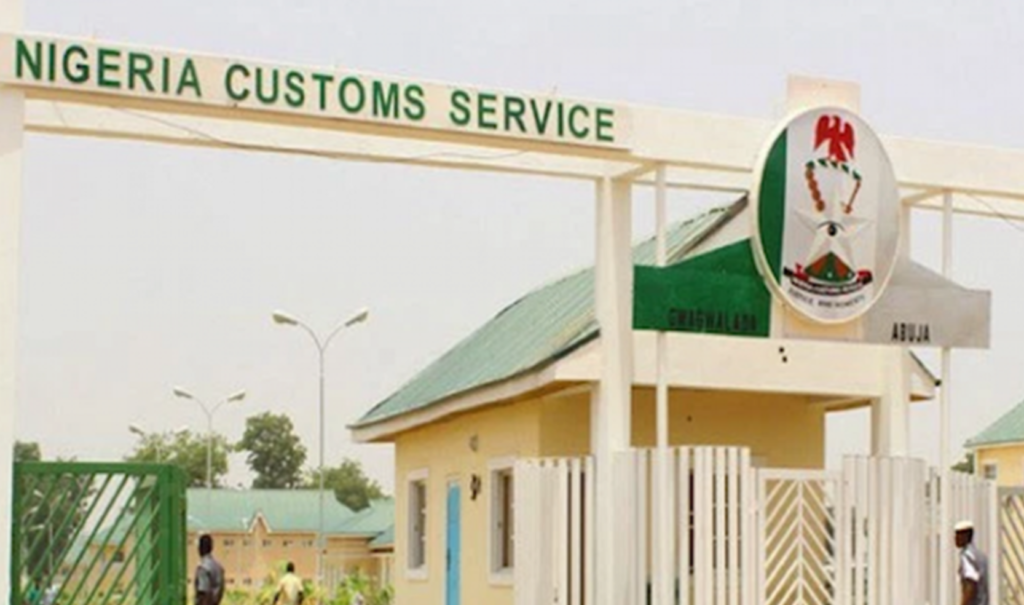By Merit Ibe
The Manufacturers Association of Nigeria (MAN) has rejected the apparent reintroduction of the 4% Free-on-Board (FOB) charge on imports by the Nigerian Customs Service (NCS).
Calling for a cessation of the implementation of the FOB charge, the Director General of MAN, Segun Ajayi-Kadir, noted that, according to reports, the regime of 1 percent Comprehensive Import Supervision Scheme (CISS) and the 7 percent cost of collection fee ends with the introduction of a single 4 percent FOB charge.
Ajayi-Kadir expressed surprise at the recent move, adding that the charge was commendably suspended by the Federal Government following the overwhelming condemnation by virtually all stakeholders, who opined that it was ill-timed and would certainly lead to an instant escalation of the cost of imports.
“Manufacturers were genuinely concerned that it would lead to a significant increase in the cost of raw materials, machinery, and spare parts that are not available locally and therefore have to be imported,” he said.
The MAN boss is equally worried over the prolonged glitch with the B’Odogwu platform of the Nigeria Customs Service (NCS), which has rendered the process of clearing goods at the ports comatose, noting that members of the association were incurring demurrage and suffering stock-out in their factories.
“We deeply appreciate the assurance of the leadership of NCS that efforts are being intensified to restore effective operation of the platform. However, the problem persists, and the attendant hardship for manufacturers and other users continues to mount,” he stated.
He noted that MAN is in support of the efforts of the government to streamline trade processes, reduce the cost of doing business at the port, and enhance fiscal transparency.
“This is because it resonates with the kernel of the Association’s advocacy for a transparent, efficient, and friendlier trade facilitation ecosystem that is more service-centric than revenue-driven. We are, however, concerned that the prevailing situation is achieving the exact opposite of these progressive ideals,” he added.
Ajayi-Kadir lamented that, after technical assessment, the association discovered that the cost burden of the 4% charge on manufacturing concerns is enormously higher than the combined effect of the 7% surcharge and 1% CISS levy.
Other effects on manufacturers include the following: “The notion that the charge streamlines previous multiple charges and reduces the cost of cargo clearance does not correspond with reality. The fact is that the cost burden of the 4% charge on manufacturing concerns is enormously higher than the combined effect of the 7% surcharge and 1% CISS levy. For instance, the new regime seeks to charge 4% of the total value of imports, which is higher than the previous regime where the 7% surcharge is based on duty payable. Except in the case of luxury goods and prohibited categories (with duty rates above 35%), a threshold analysis reveals that the 4% FOB levy will generally result in a much higher cost burden than the previous 1% CISS + 7% collection structure. So, retaining the previous charge structure better ensured adequate revenue mobilisation for Customs without penalising essential industrial imports. This is more so that some of our members have reported that the 7% surcharge subsists.
“For high-value imports such as raw materials and machinery, this will result in a significant net increase in cost and exacerbate the financial burden on manufacturers. In fact, costs associated with the 4% FOB charge will generally increase the import cost of raw materials not available locally above the N6.6 trillion recorded in 2024. Clearly, the cost will be passed on to consumers and this will fuel inflation, which already stands at 21.88% as of July 2025, and undermine the prevailing struggle with high inflation.
“In the West African sub-region, comparator economies such as Ghana, Côte d’Ivoire, and Senegal have maintained targeted inspection or collection fees within the 0.5%–1% FOB range, focusing high levies only on luxury or non-essential imports. As such, the Nigeria Customs Service’s unilateral imposition of a uniform 4% FOB levy would raise the cost of doing business, incentivise informal cross-border sourcing, cargo diversion, and encourage under-declaration.
“The Nigerian manufacturing sector is already contending with a high exchange rate of over ₦1540/$, an exorbitant alternative energy cost burden of over ₦1.1 trillion as of 2024, and an alarming average interest rate of above 35 per cent. Therefore, introducing a blanket 4% FOB charge on the value of imports under the prevailing tough economic conditions is not industry-friendly and certainly not development-oriented.”


